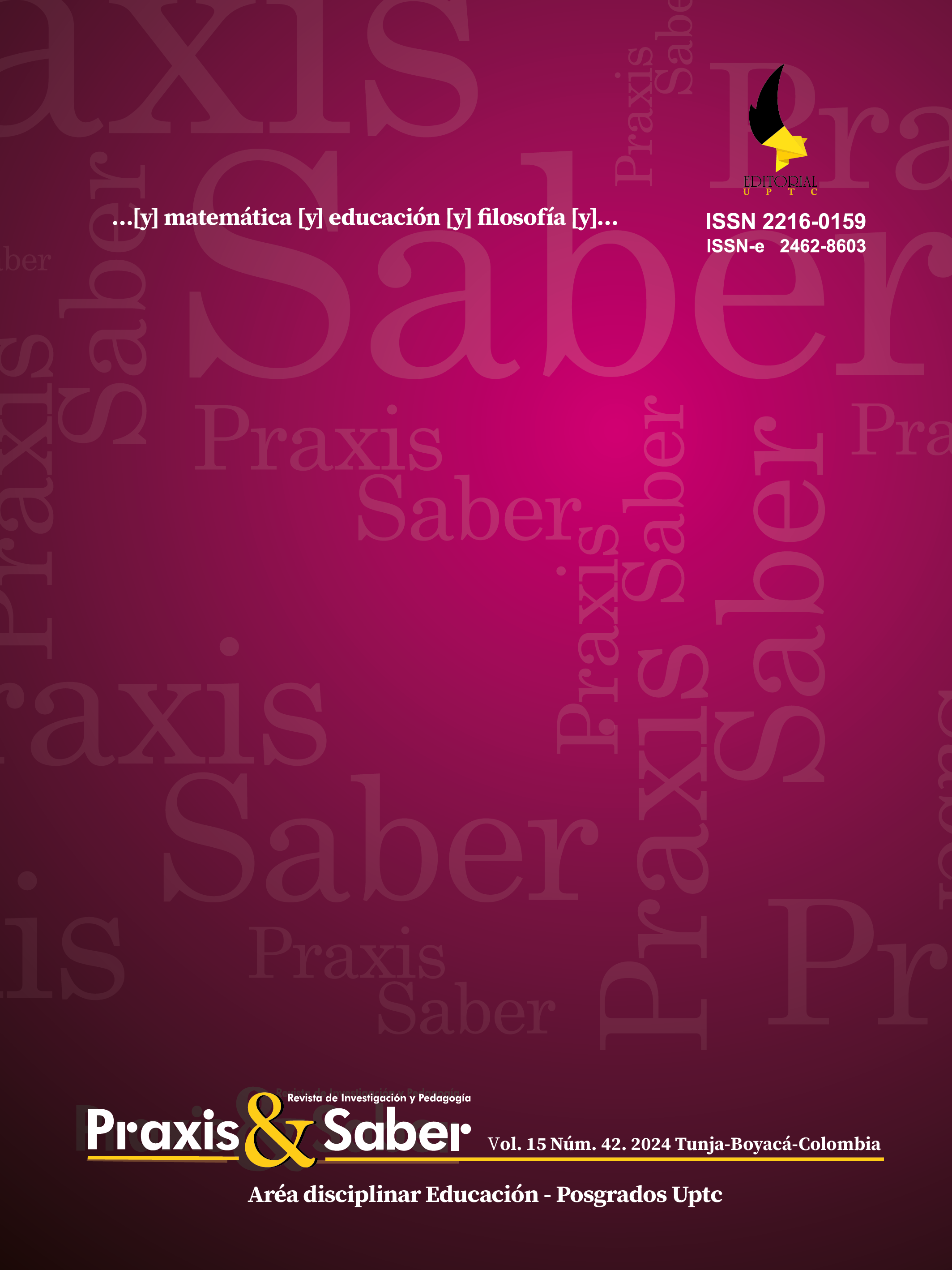Analysis of benefits student-teachers perceive about co-teaching within an EFL basic course

Abstract
Adjusting to current times, two teacher-researchers from ÚNICA undertook the endeavor of devising a collaborative scheme intended to enrich a group of 12 Basic English student-teachers with knowledge on co-teaching, embodied in an array of methodologies, skills, expertise, and background. These benefits were encompassed in co-teaching, which implies two or more educators designing, teaching, and assessing a part or the entirety of a class. Through cross-examining a series of participant reflections and interviews, researchers found that student-teachers praised co-teaching as a strategy to incorporate in their future language classes to foster, on one hand, varied pedagogical strategies and resources, and on the other hand, their envisioning of the co-teaching roles in the future, which is connected to the construction of student-teachers’ identity, an aspect of professional development. Furthermore, participants assigned co-teaching metacognitive benefits related to self-regulation skills, autonomy, and ownership. They valued that collegial feedback entailed advantages in different aspects of their learning, propelled by the quality, promptness, customization, and practicality of remarks provided by the co-educators.
Keywords
co-teaching, co-teaching strategies, collegial feedback, student-teachers’ education, professional development
Author Biography
Francisco Antonio Pérez-Gómez
Wilson Alejandro Pérez-Segura
References
- Aliakbari, M., & Bazyar, A. (2012). Exploring the Impact of Parallel Teaching on General Language Proficiency of EFL Learners. Journal of Pan-Pacific Association of Applied Linguistics,16(1), 55-71. https://files.eric.ed.gov/fulltext/EJ979922.pdf
- Anani, O., Badaki, J., & Kamai, R. (2016). Effects of Feedback Intervention on Team-teaching in English Language Classrooms in Nigeria. Journal of Education and Practice. 7(25),27-43. https://files.eric.ed.gov/fulltext/EJ1115848.pdf
- Benwell, B., & Stokoe, E. (2006). Discourse and identity. Edinburgh University Press. https://books.google.com.co/books?hl=es&lr=&id=RM-qBgAAQBAJ&oi=fnd&pg=PP1&dq=Benwell,+B.+and+Stokoe,+E.+(2006).+Discourse+and+identity.+Edinburgh+University+Press.&ots=XVYb37ja0T&sig=oRAW8f24iOh9Wj5kYm_y7idTTys#v=onepage&q&f=false
- Boland, D., Alkhalifa, K., & Al-Mutairi, M. (2019). Co-Teaching in EFL Classroom: The promising model. English Language Teaching, 12(12), 95.-117. DOI: https://doi.org/10.5539/elt.v12n12p95
- Butterfield, J., & Bhatta, B. (2015). IRF sequences in team-teaching EFL classrooms. The Asian Journal of Applied Linguistics, 2(3), 176-185.
- Clement, M., & Vandenberghe, R. (2000). Teachers’ professional development: a solitary or collegial (ad)venture? Teaching and Teacher Education 16, pp. 81-101.https://www.sciencedirect.com/science/article/abs/pii/S0742051X99000517?via%3Dihub DOI: https://doi.org/10.1016/S0742-051X(99)00051-7
- Cook, L., & Friend, M. (2004). Co-teaching: Principles, Practices and Pragmatics, Paper presented at the quarterly meeting of the New Mexico Public Education Department Special Education Meeting, Albuquerque, NM.https://files.eric.ed.gov/fulltext/ED486454.pdf
- Escobar, C. (2020). Coteaching in CLIL in Catalonia.CLIL Journal of Innovationand Research in Plurilingual and Pluricultural Education, 3 (2), 37-55. https://doi.org/10.5565/rev/clil.54 DOI: https://doi.org/10.5565/rev/clil.54
- Friend, M. (2008). Co-teaching: A simple solution that isn’t simple after all. Journal of Curriculum and Instruction, 2(2), 9–19.https://joci.ecu.edu/index.php/JoCI/article/download/17/26 DOI: https://doi.org/10.3776/JOCI.2008.V2I2P9-19
- King (2018). Joint Initiation and Joint Feedback: Connecting Collaboration with Pedagogy in Co-teaching. Hacettepe University Journal of Education (HUJE), 33, 4-15. https://www.researchgate.net/publication/324592231_Joint_Initiation_and_Joint_Feedback_Connecting_Collaboration_with_Pedagogy_in_Co-teaching DOI: https://doi.org/10.16986/HUJE.2018038793
- Lee, J. (2017). Co-initiations in EFL collaborative teaching interaction. English Teaching, 72(3), 3-24 DOI: https://doi.org/10.15858/engtea.72.3.201709.3
- López, M. (2020). Co-teaching: Preschool Teachers’ Insights About The EFL Co-acting Practice. [Undergraduate thesis, Universidad Pedagógica Nacional]. http://repository.pedagogica.edu.co/bitstream/handle/20.500.12209/12663/Co-teaching%2c%20preschool%20teachers%27%20insights.pdf?sequence=1&isAllowed=y
- McDuffie, K., Mastropieri, M., & Scruggs, T. (2009). Differential effects of peer tutoring in co-taught and non-co-taught classes: Results for content learning and student-teacher interactions. Exceptional Children, 75, 493- 510 DOI: https://doi.org/10.1177/001440290907500406
- Naegele, Z., Ralston, N., & Smith, R. (2016). Co-Teaching as a Method to Benefit English Language Learners”. Education Faculty Publications and Presentations. 37. https://pilotscholars.up.edu/cgi/viewcontent.cgi?article=1045&context=edu_facpubs
- Nafiye, C., & Hatice, C. (2020). ELT Student Teacher Identity Construction: Exploring TeacherRoles and Domains of Expertise. Acıbadem Mehmet Ali Aydinlar University. https://ojs.unm.ac.id/ijole/article/view/10655/xml
- Martínez, N, & García. (2014). Language Learning Styles and Strategies. An Overview. GALA
- Pérez-Gómez, F., & Pérez-Segura, A. (2022). Journey through Colombian Co-Teaching Experiences (Working Paper). https://doi.org/10.26817/paper.18 DOI: https://doi.org/10.26817/paper.18
- Puello, I., & Ramírez, S. (2020). Co teaching as an alternative to promote English language learning in a public school in Bogotá. [Master ‘s degree study. Universidad de La Sabana].https://intellectum.unisabana.edu.co/bitstream/handle/10818/45176/Tesis%20Ibeth%20Puello-Sandra%20Ram%C3%ADrez.pdf?sequence=1&isAllowed=y
- Sekoubaou, A. (2018). An Exploration of the Concept and Practice of Co-teaching in Public Secondary School EFL Classes in Benin. Journal of Language Teaching and Research, 9, No. 4, pp. 765-776. http://dx.doi.org/10.17507/jltr.0904.13 DOI: https://doi.org/10.17507/jltr.0904.13
- Sfard, A., & Prusak, A. (2005). Telling identities: In search of an analytic tool for investigating learning as a culturally shaped activity. Educational Researcher, 34(4), 14–22. https://www.researchgate.net/publication/242177845_Telling_Identities_In_Search_of_an_Analytic_Tool_for_Investigating_Learning_as_a_Culturally_Shaped_Activity DOI: https://doi.org/10.3102/0013189X034004014
- St. Cloud State University. (2011). Co-teaching strategies (Data file). https://www.stcloudstate.edu/oce/_files/documents/coteaching/Co-Teachingdefinitionsandexamples.pdf
- Strauss, A., & Corbin, J. (1998).Basics of Qualitative Research: Grounded Theory Procedures and Techniques (2nd ed.). Sage.
- Villa, R., Thousand, J., & Nevin, A. (2008). A guide to co-teaching: practical tips for facilitating student learning . Thousand Oaks: Corwin Press.
